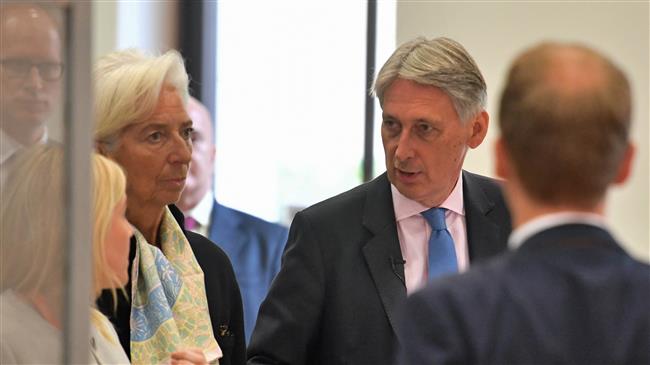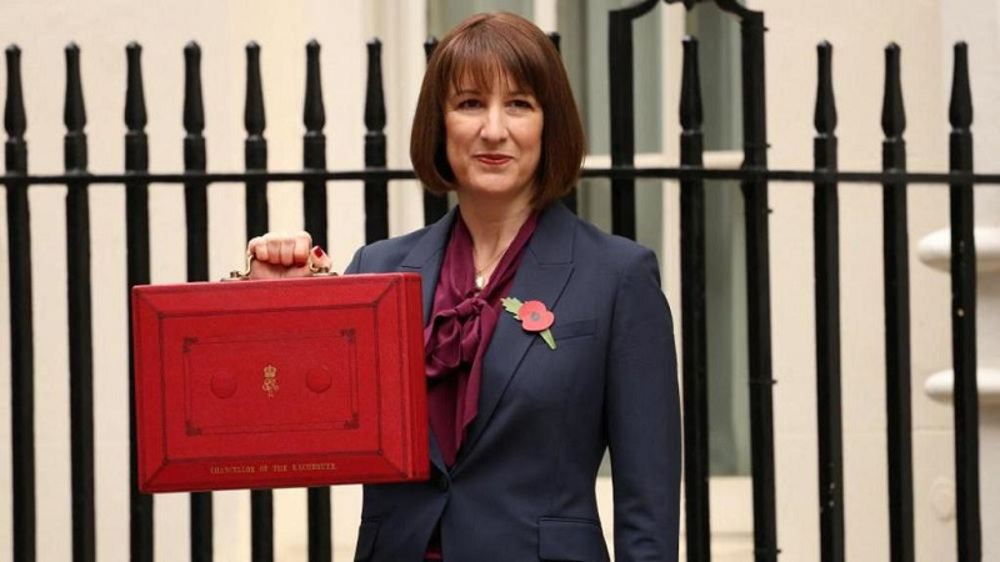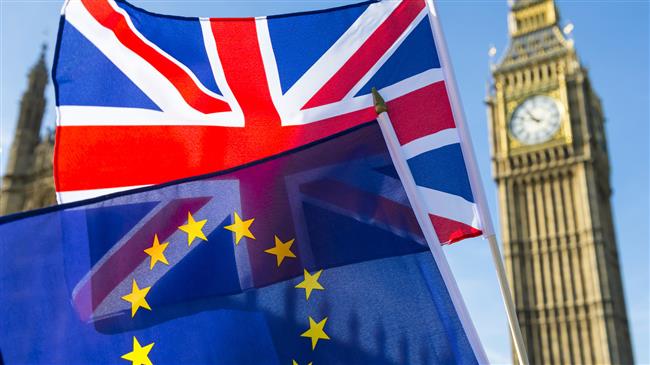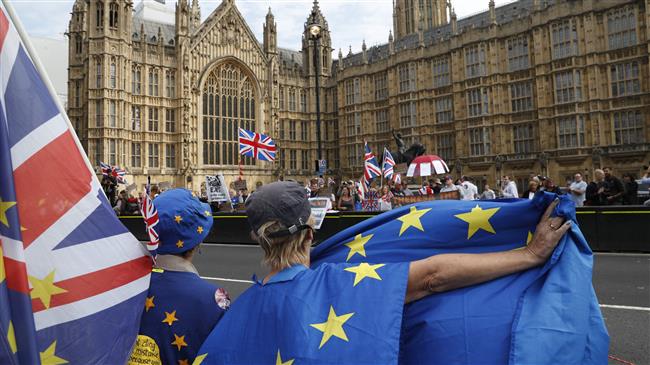No-deal Brexit will contract UK economy: IMF
The International Monetary Fund (IMF) has warned Britain that its economy would shrink if its leaves the European Union in March without reaching a deal on future relationship with the bloc.
IMF Managing Director Christine Lagarde said Monday that Britain’s potential failure to get a deal with the EU would be costly for the economy.
“Let me be clear, compared with today’s smooth single market, all the likely Brexit scenarios will have costs for the economy and to a lesser extent as well for the EU,” Lagarde said, adding, “The larger the impediments to trade in the new relationship, the costlier it will be.”
The IMF chief made the remarks as she was presenting the organization’s annual report on Britain’s economy. Accompanied by Britain’s finance minister Philip Hammond, Lagarde said in the briefing that a deal on Brexit, however, would help the British economy to grow on a slower pace than now, without a contraction.
“I’m a desperate optimist, and I very much hope and pray that there will be a deal between the European Union and the UK,” said Lagarde, adding that Britain will lag behind Germany and France with a 1.5-percent economic growth if a broad Brexit agreement was struck.
Hammond, criticized at home for his efforts to maintain Britain as close as possible to the EU after Brexit, said London should take the IMF warnings seriously.
Opponents of Hammond and Prime Minister Theresa May believe Britain would be better off while distancing itself from Brussels. They say less dependency on the EU would allow Britain to work out its own trade deals with fast-growing economies around the world.
Hopping to reach a deal on Brexit in the coming weeks, May has insisted that her strategy for preserving some trade ties with the EU after Britain’s withdrawal from the bloc is the only way to avoid major economic shocks.
Iran: US airstrikes on Yemen war crimes, violation of international law
Yemeni armed forces down F-18 fighter jet, repel US-UK attack: Spokesman
Iran warns against US-Israeli plot to weaken Muslims, dominate region
VIDEO | Public uproar in US against Israeli regime
‘Ghost town’: 70% of Jabalia buildings destroyed by Israel
Mother’s Day: Sareh Javanmardi’s inspiring journey as Paralympic champion and mother
Russia downs over 40 Ukrainian drones as Putin vows 'destruction' on Kiev
VIDEO | Yemen: A bone in Israeli neck














 This makes it easy to access the Press TV website
This makes it easy to access the Press TV website